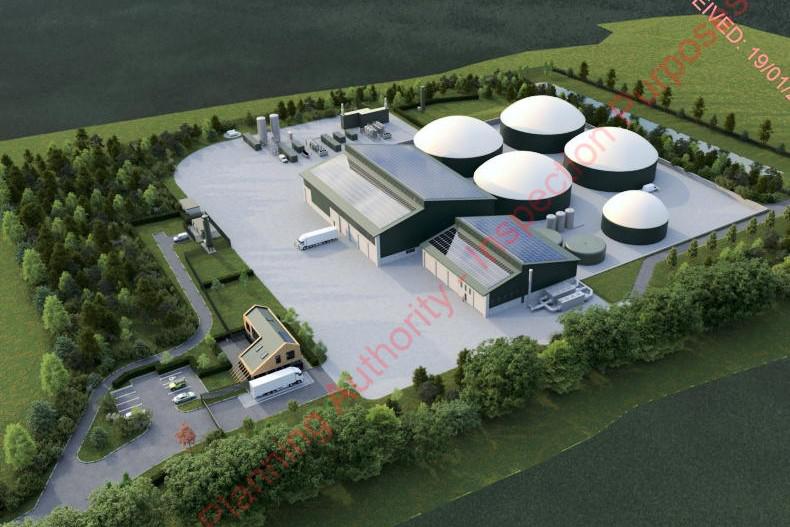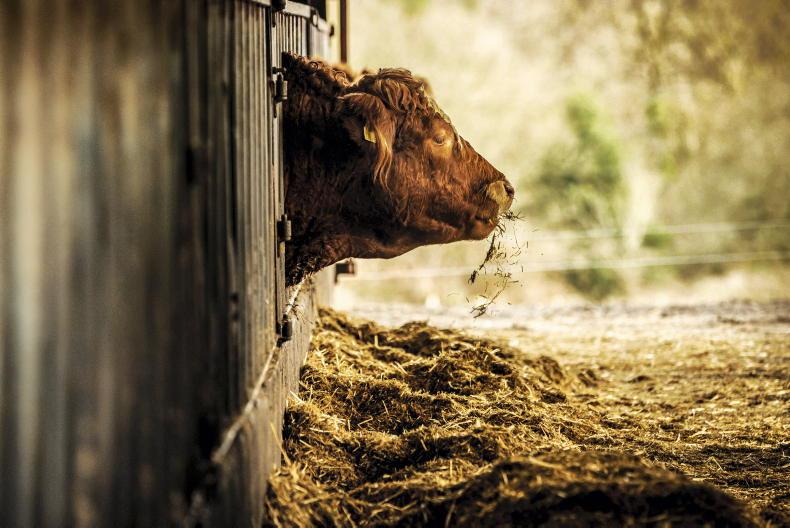The year 2022 will be seen as a good one for beef finishers. Those operating the traditional weanling-to-steer beef system saw beef prices increase by almost 90c/kg over the 16- to 18-month feeding period. Finishers operating a five- to six-month shorter keep system saw prices increase by a record 50-60c/kg between purchasing last autumn and slaughtering this spring. Even what looked to be over-priced grass cattle last spring delivered good returns when slaughtered this autumn.
As these farmers look to refill their sheds, they are facing into a very uncertain future. But judging by the mart trade, most look set to use what profits were made on animals slaughtered over the past year to rebuild stocks, despite the obvious increased financial risks.
As Adam Woods reports in this week's edition, winter finishers are effectively building a business plan on the basis that markets will return record beef prices next spring and indeed throughout 2023 – somewhere in the region of €5.75/kg to €6/kg as a base price.
Negative impact of new CAP
When we look at margins from suckling and beef finishing and consider the negative impact that the new CAP will have on many of these farmers, there is no disputing that record beef prices are merited – even before the impact of soaring input costs are taken into account. But, as history shows, what is merited and what the market actually returns often bear no resemblance.
Worryingly, historic trends would indicate that the prospects for record beef price increases to be delivered in 2023 on top of what were record beef prices in 2022 does not look promising. Over the past 10 years, beef price surges have tended not to last any more than 12 months before seeing a sharp downward adjustment.
It is worth noting that in 2015, when beef prices in the British market last spiked at the equivalent of over €5/kg, they fell by €1/kg during the first four months of 2016. The trend indicates a preparedness by retailers to temporarily accept lower or even negative margins on beef to ensure product availability – but only on the basis that any losses will be fully recouped quickly in the ensuing downturn.
The beef price surge in 2022 is one of the strongest in recent decades. Between January and June, Irish beef prices increased by over €1/kg. Since then, prices have fallen and are currently 60c/kg less than the peak of the summer months.
Market correction
The question is whether this is the start of a market correction or merely reflecting the traditional flush of finished cattle coming off grass in the autumn. Whatever the reason, a 60c/kg decline in the period of just a few months, to the current base of €4.65/kg, has to be a major concern for those banking on a beef price of closer to €6/kg next spring. Assuming prices stabilise at current levels, an autumn-spring beef price swing of €1.35/kg is required.
To put this into context, over the last decade, the average beef price increase between late autumn and mid-spring has been just 25c/kg. The 50-60c/kg autumn-spring price increase earlier this year was a new record. The question is: will this record price jump more than double to €1.35/kg to ensure beef prices next spring respond to the cost surge at farm level?
There is of course an argument that we are in unprecedented times and that looking at historic trends are of little value in the current market. But it must also be recognised that these unprecedented times present new and unique challenges – particularly in relation to consumer spending.
Is there scope for a further beef price increase next year without affecting demand as consumers across our main export markets struggle with soaring energy costs and rapid inflation?
Price pressure
Already there are indications that pressure is coming on retail beef sales in Britain – a market that is also likely to become more competitive with the arrival of Australian and New Zealand beef next year.
Again, nothing is to undermine the legitimate need for finishers to receive strong beef prices next year and for store producers to see increased costs reflected in mart prices. But market trends should not be ignored. Securing a record beef price of €5.75/kg to €6/kg amid a cost-of-living crisis will require a commitment from across the supply chain to reward those farmers who have once again taken all the risk.
If this commitment does not exist and record prices are not returned next spring, 2023 could be the year where record losses finally put an end to winter finishing and our year-round beef supply.
The Irish Farmers Journal is delighted to announce plans to initiate a CAP information roadshow this autumn. The Government formally ratified plans for the new CAP last week.
The objective of the meetings across the country is to share up-to-date information with farmers on what is changing in the new CAP – due to start in 2023 – and what schemes farmers are likely to participate in.
The first meeting will start in the Silversprings Hotel in Cork on Tuesday 25 October at 7.30pm and will finish at 9.30pm. The event is free to attend and all are welcome. Space is limited so registration is advised at www.ifj.ie/register.
Speakers on the night will include representatives from the Department of Agriculture, Food and the Marine.








SHARING OPTIONS